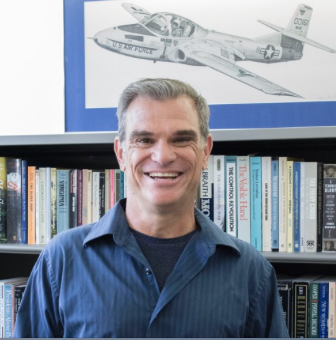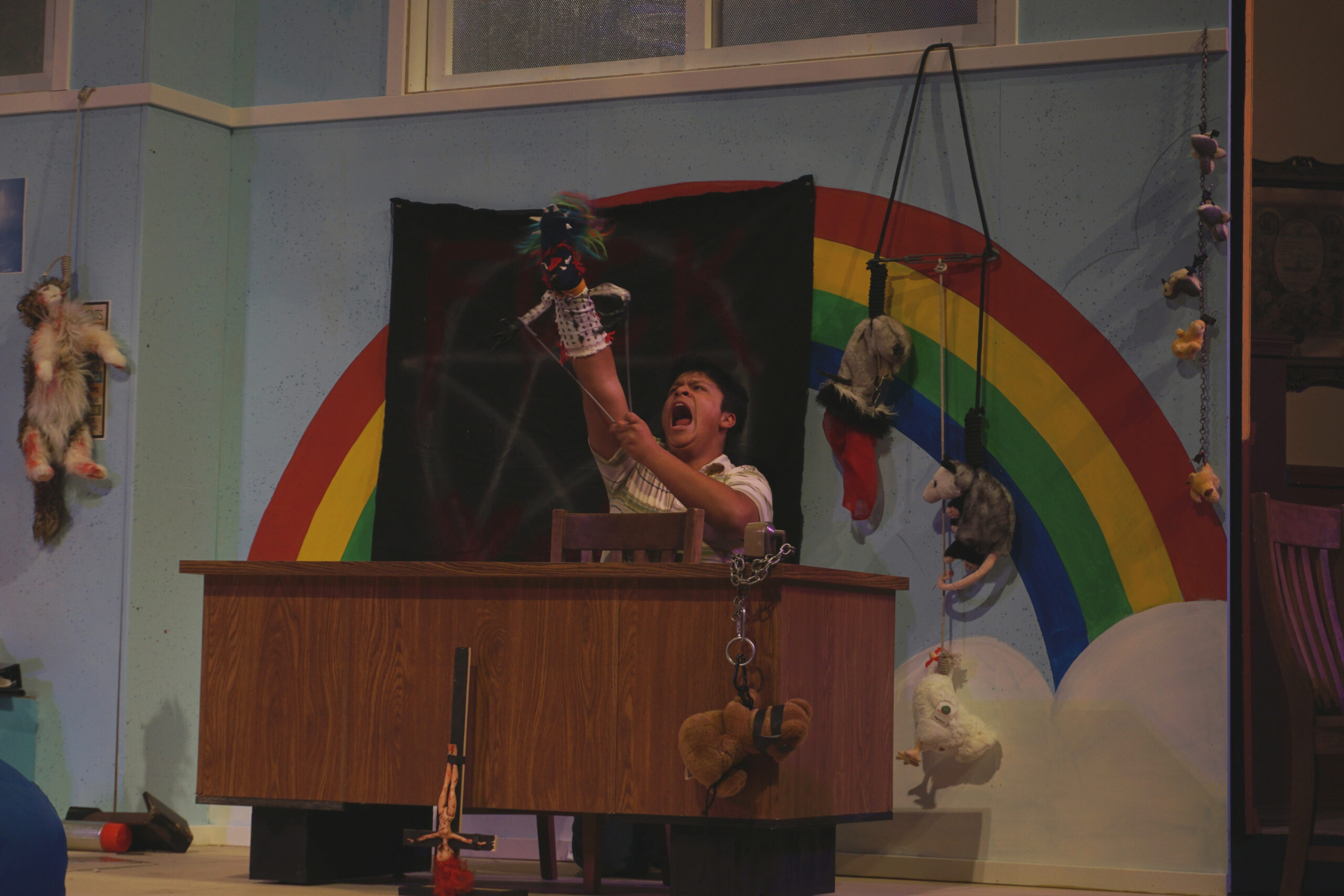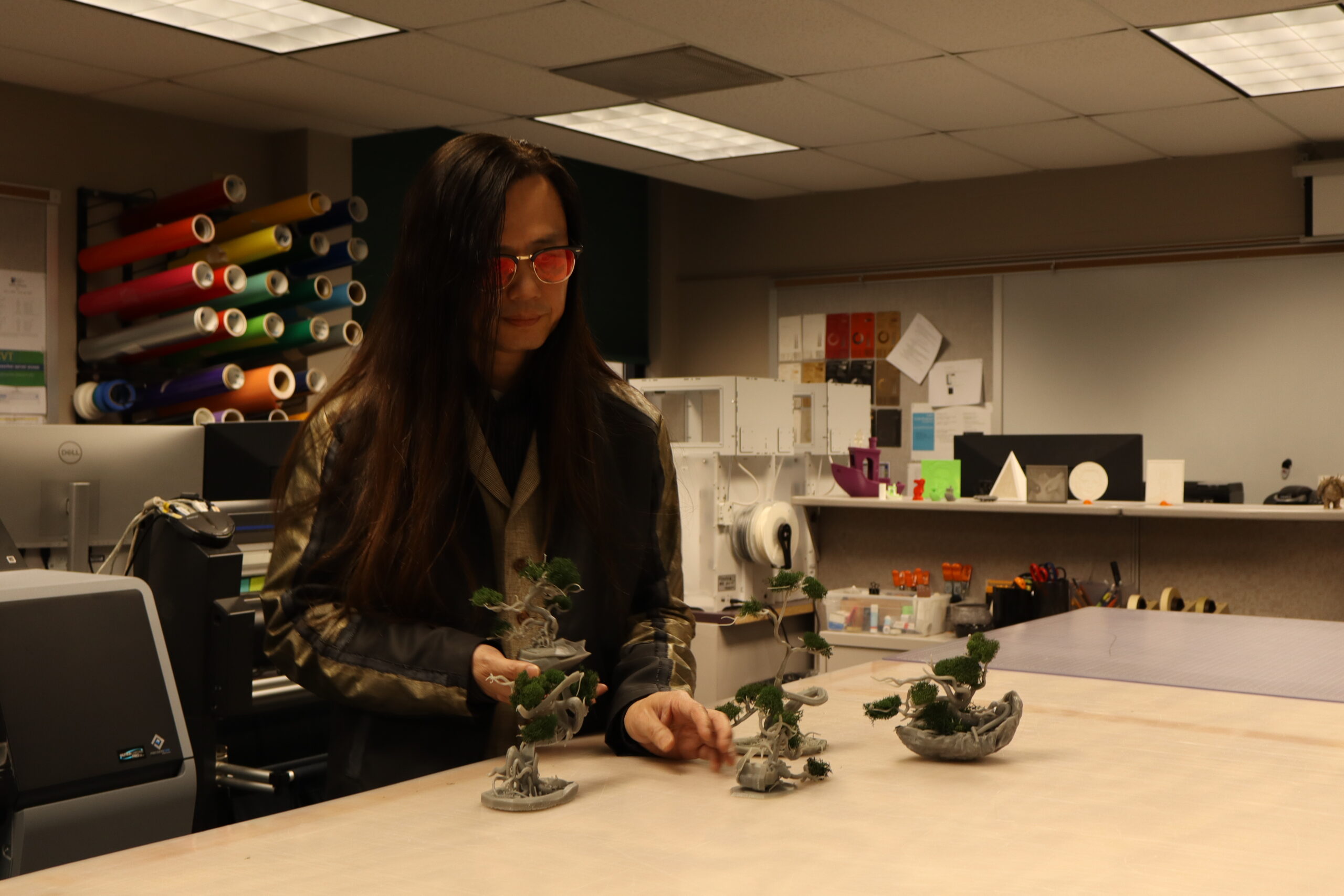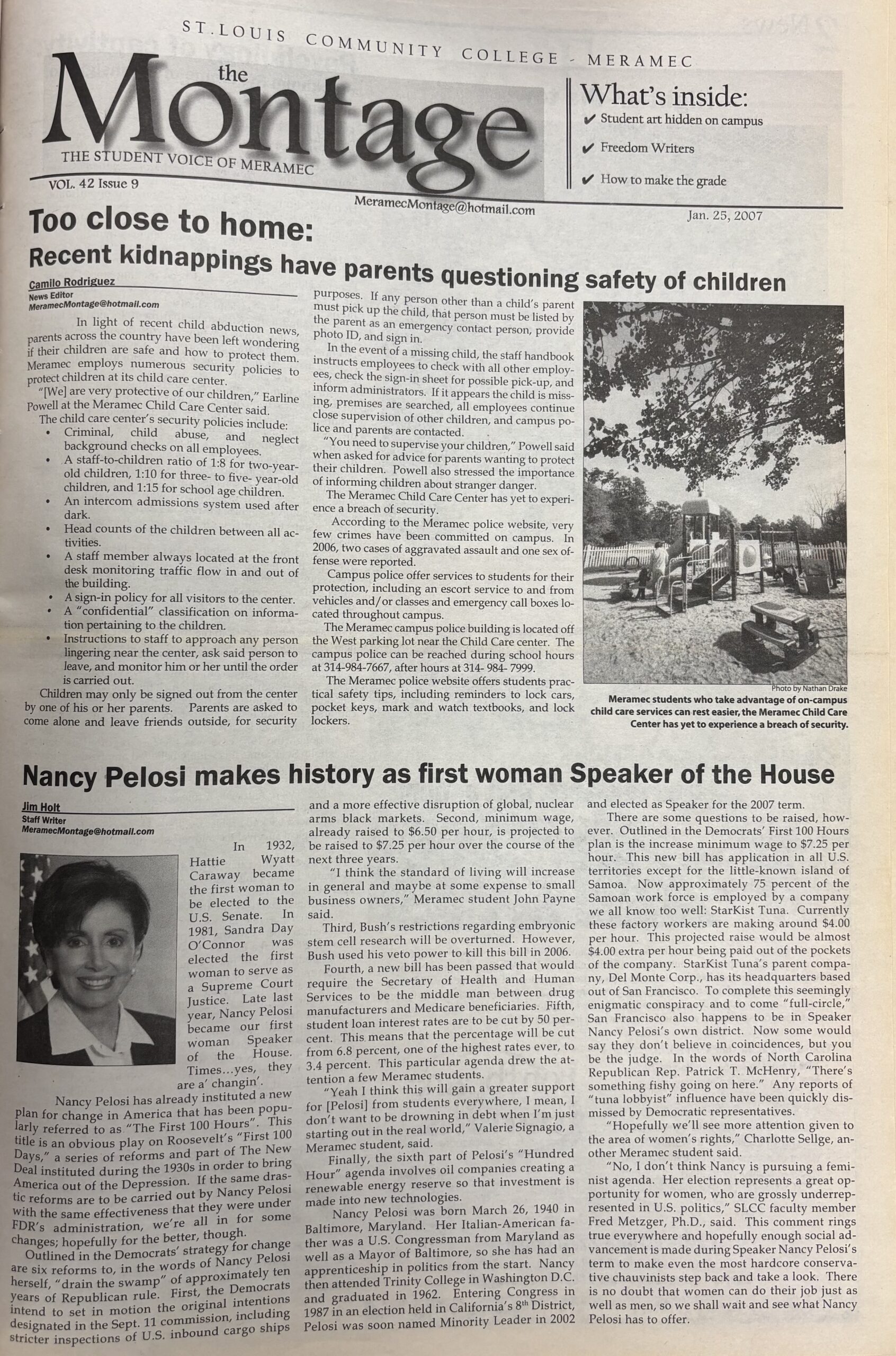History professor goes for the big picture
 By: Marie Schwarz
By: Marie Schwarz
Managing Editor
Professor Steven G. Collins didn’t know that he had a passion for history until he went to college.
“I always wanted to be an air force pilot,” Collins said.
And then, at the age of 19, his history professor “blew [his] mind.”
Today, 32 years later, Collins is still fascinated with history. Moreover, he is a respected professor here at St. Louis Community College – Meramec.
“I love history, and I love making it bring alive,” Collins said. “Mud, blood, beer, sex, [history has] everything.”
Surprisingly, Collins gives himself a six out of ten when asked how much of a history nerd he is. “I’m more of a big think [sic],” he said. “I like to tie [events in history] to current politics and events.”
His favorite historic figure is Abraham Lincoln. “[Lincoln] was a phenomenal president,” Collins said. “He was able to reflect on his thinking and reflect on his ideas and change his mind. Today, you change your mind, you’re a flip flopper.”
Collins welcomes discussions with people who have different opinions than his. A thing, he said, that is less and less acceptable in America.
“Anti-intellectualism has led us to not communicating anymore,” said Collins. “’I’m not even listening to you anymore because you have an opposing opinion.’”
An example for this trend of anti-intellectualism can be seen in American politics.
“[In the past] people in congress and the senate could disagree and then go out and get drinks and be friends,” Collins said. “Now, if you’re seen going to golf with someone from the other party, you’re somehow a traitor. That is just not healthy.”
The history professor is more of an early bird than a night owl. On a normal day, he enjoys getting up at 5 a.m. and equipped with a “big pot of coffee,” he starts reading history for a couple of hours before he leaves for college.
In the evening, he likes to “chill out” for a little bit by watching the series, The Big Bang Theory for example. The series he watches right now though doesn’t help much to relax.
“Right now it’s not a chill out,” Collins said. “My son got me addicted to Breaking Bad.”
Before Collins goes to bed, he often ends his day the way he started it: with reading.
As Lincoln, Collins likes to reflect on things. That also includes his future plans.
“I really had to rethink what I wanted to do. For a while, I was thinking that I wanted to go into administration” Collins said. “Maybe become a dean or a college president. But the more I think about it, the more I want to go back to being a historian,” said Collins and added traveling and teaching to the bill.
“I think that’s where I draw most of my happiness,” Collins said.
The history professor just started a new research project where he is looking at community colleges during the 1960s. He is gaining information of the Anti-War Movement and the Women’s Movement amongst other topics relevant to the time period.
Therefore, he started to read the first issues of Meramec’s student newspaper from 1963.
Collins doesn’t often teach notes, but tries to get the big picture painted to his students via a conversational teaching style.
Emma Fraley, a former student of Collins’ “Movement Culture of the 1960’s” class, described Collins in an email as “down to earth and knowledgeable in the subject he teaches.”
“He is easy to talk to if you are interested in a topic or have questions pertaining to discussion in class,” said Fraley who is getting her associate degree in general education at Meramec.
Though Hollywood might not be always historically accurate, Collins said he likes to show scenes of movies that capture the vibe of the time. Cinderella Man is one of those movies.
One of his favorite books that he recommends to his students is “The Devil in the White City,” written by Eric Larson, which takes place in Chicago during the World’s Fair in 1893 and tells the story through two perspectives: an architect, and America’s first serial killer.
“Being a historian makes me calm. People are like ‘Argh, it never has been worse,’ and I’m like: “Yeah it has,” Collins said. But if people simply don’t know what happened in the past. And that’s why: “History is power,” Collins said.
Learn more about Professor Collins’ in this exclusive podcast from The Montage.











